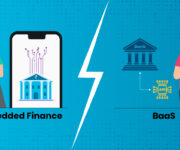Credit bureaus and credit rating agencies are easily confused, especially because credit bureaus are also referred to as “credit reporting agencies.”
Credit bureaus, such as Equifax, Trans Union CIBIL, and Experian are agencies that give information about an individual’s creditworthiness. They provide credit reports and credit ratings to creditors, such as banks, to assist them in deciding how risky an individual is to lend to. The higher an individual’s credit score is, the higher their credit profile is.
Companies and their debt issuance are rated by credit rating agencies such as CRISIL, CARE, Fitch India, etc. It enables investors to assess the riskiness of a company and its debt before making an investment decision. In other words, how likely is it that the company will default on its debt obligations?
Both credit rating agencies and credit bureaus are heavily regulated, and their activities have been scrutinised more closely since the financial crisis of 2007-08.
What is a Credit Bureau?
A credit bureau keeps track of borrowers’ credit history to generate credit reports and scores. Financial institutions purchase this data to assess their customers’ credit risk and decide whether to give credit to them.
Individual debtors’ credit reports and ratings are compiled primarily for lenders. Credit bureaus or credit reporting companies are agencies that collect and disseminate information regarding consumer creditworthiness.
The way information is transmitted is an interesting aspect of the credit bureau business model. Consumer credit information is freely given to credit bureaus by financing companies, banks, retailers, and landlords, who then sell it back to them.
Credit bureaus in India, unlike credit rating agencies, assign a credit score to individual borrowers depending on the individual’s creditworthiness and payback history. After analysing the individual’s credit history, credit bureaus generate a three-digit credit score and credit report. This aids lenders in weeding out unsuitable loan applications with high risk. In India, for example, the Experian credit score ranges from 300 to 850, while the CIBIL score is from 300 to 900. In all cases, a higher score indicates a stronger financial profile.
List of credit information bureaus in India
- Experian
- Equifax
- TransUnion CIBIL
The Reserve Bank of India has granted authorization to companies registered under the Credit Information Companies (Regulation) Act, 2005 to offer credit scores based on past performance, reported by several member credit institutions and banks.
Functions of credit bureaus in India
In India, credit information bureaus perform the following functions:
- Individual borrowers’ credit information is kept on file by credit bureaus. Members of credit bureaus have access to a wide range of risk management tools.
- Credit bureaus help lenders evaluate a borrower’s credit behaviour and past or current relationships with numerous lenders by providing portfolio reviews of borrowers.
- Credit information firms, in addition to assisting lenders, also assist individual borrowers in monitoring their credit health.
What is a Credit Rating Agency?
A credit rating agency assigns a score to various entities as borrowers based on a range of metrics and factors. Individuals are not included in these entities, and ratings are given in the form of letters such as AAA, CCC, and so on. These ratings are usually divided into two categories: investment grade and non-investment grade.
Since the amount borrowed by companies can be in the millions or crores, individuals who invest in or lend to them face a comparatively greater risk. Hence, with these credit ratings, investors and lenders can make better judgements about corporate borrowers who might be:
- Companies
- Local governmental bodies
- Non-profit organisations
- Special purpose entities
- State governments
Credit rating agencies help investors to analyse the risk-reward potential of various investments and provide information on debt-issuing organisations’ financial soundness. Insurance firms are also given credit ratings to demonstrate their financial stability.
Credit ratings are based on a number of factors, including market-based, historically estimated information at the corporate level. The assessments span from business attributes to underlying investments, and they are all intended to assess the borrower’s ability to repay its debt.
Credit ratings are compiled and distributed by credit rating agencies, among which Moody’s, Standard & Poor’s, and Fitch Ratings are the three major international participants.
List of credit rating agencies in India
- Credit Rating Information Services of India Limited (CRISIL)
- Brickwork Ratings (BWR)
- Investment Information and Credit Rating Agency of India Limited (ICRA) Credit Analysis & Research (CARE)
- Onida Individual Credit Rating Agency of India (ONICRA) Fitch India
- SME Rating Agency of India Limited (SMERA)
According to SEBI Regulations, 1999 of the SEBI Act, 1992, the Securities and Exchange Board of India (SEBI) reserves the capacity to authorise and regulate credit rating agencies.
Functions of credit rating agencies
In India, credit rating agencies provide the following functions:
- Entities are rated by credit rating agencies based on their ability to repay a loan or service debt.
- Financial institutions such as banks, public businesses, NBFCs, microfinance institutions, and mutual fund firms are rated by credit rating agencies. Fixed deposits, bank loans, bonds, and hybrid capital instruments are among the debt instruments and short-term investment vehicles they rate.
- Investment credit ratings recognised by the credit rating agencies assist investors in making educated judgments.
- Credit rating agencies conduct comprehensive research on the economy as a whole, encompassing industries and businesses, and provide insightful analyses to their members. The mutual fund industry uses credit rating agencies for risk management and fund evaluation.
- Policy and regulatory advice are provided by credit rating agencies to major corporations and the government.
Key Differences Between Credit Bureaus and Credit Rating Agencies
Credit information bureaus in India, generate credit scores and reports for borrowers in the country, while Indian credit rating agencies (CRAs) assess the safety or risk of investment alternatives offered by corporations or organisations.
The latter assess borrowers’ creditworthiness and ability to repay the debt to help lenders better estimate risk, whereas the former rates an organization’s offerings to assist investors.
The purpose and functions of these institutions are what distinguish them. Although both credit rating agencies and credit bureaus give financial information to individuals, the types of information provided, the entities described by the information, and the people who use the information are significantly different. The purpose for accessing the information differs significantly between the two.
If an investor wanted to spend INR 1,00,000 in the hopes of making a profit, he or she may consider purchasing a company’s corporate bonds. Before making this investment, he or she would check the company’s credit information from CRISIL or CARE to see how risky the investment is and how likely it is that he or she will lose money. It is for personal gain that this information is being accessed.
Individuals, on the other hand, would have no motive to look at their credit records unless they were interested in learning their credit score. Only if an individual applied for a loan or a credit card would a bank or credit card firm get access to their credit information.
The bank, for example, would look at the credit profile of the loan application using the information provided by the credit agencies. This would enable the bank to determine whether the applicant has good or bad credit and, if so, whether to grant a loan and at what interest rate. The purpose of accessing this information is to manage risk and avoid a potential loss.
The Bottom Line
When referring to the score connected with firms, the term ‘credit rating’ is commonly used. You should be aware that a company seeking credit will be evaluated based on its track record and financial situation in order to determine its credit rating. Individuals are referred to by the term ‘credit score.’
Finezza’s credit bureau analysis solution enables banks, NBFCs, consortiums, and entrepreneurial ventures to make risk-free decisions in the face of rising credit demand and a plethora of lenders. Finezza’s Credit Bureau Data Analyser provides an all-in-one credit evaluation solution, backed by AI-powered prediction analysis and complemented by extensive data reports from many sources.
By combining data from many data sources to create a thorough credit evaluation procedure, Finezza’s superior credit bureau analysis makes this feasible in a single click. Hence, lending institutions can save cost by identifying and onboarding profitable borrowers, meeting demanding customer acquisition targets, and substantially reducing credit risk and payment defaults.




Leave a Reply